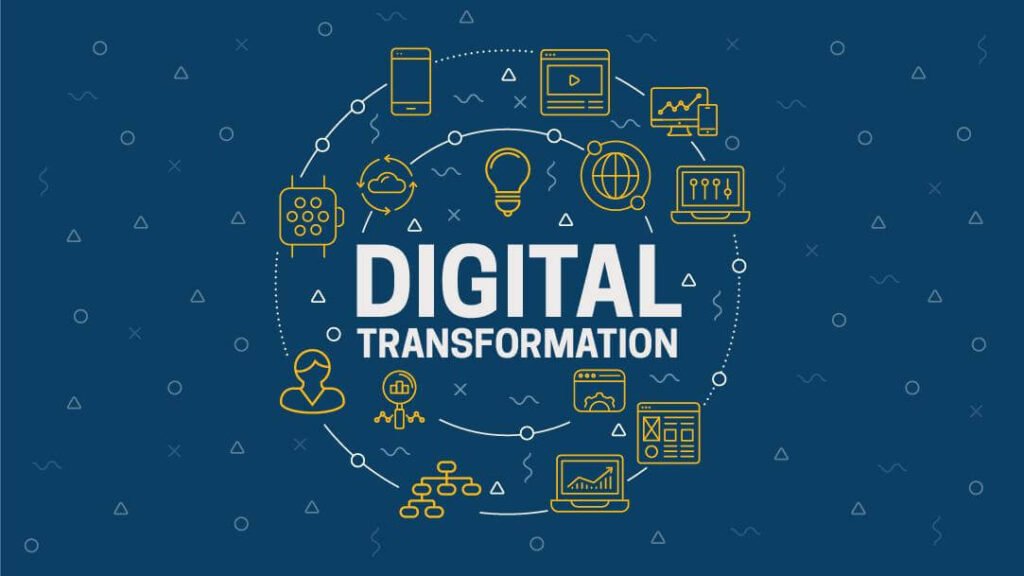Digital transformation refers to the process of using digital technologies to fundamentally change how an organization operates and delivers value to its customers. This process involves the integration of digital technology into all areas of a business, fundamentally changing how it operates and delivers value to its customers. Digital transformation can help organizations improve operational efficiency, increase revenue, and gain a competitive advantage.
It is a broad term that can encompass a wide range of technologies, such as cloud computing, artificial intelligence, big data analytics, and the Internet of Things. Additionally, digital transformation can also involve changes to an organization’s culture, processes, and business models to fully leverage the capabilities of these technologies.
It is not just about technology, it is about an organization’s overall strategy, processes, culture and how it adapts to the digital world. It is the process of re-imagining how an organization operates and delivers value to its customers by leveraging the latest digital technologies. This requires a holistic approach that addresses not only the technical aspects of the transformation, but also the organizational and cultural changes that must take place.
For example, when implementing a new digital platform, it is important to consider not just the technical requirements, but also the impact it will have on the organization’s processes and business models. This requires a deep understanding of the organization’s goals and objectives, as well as an understanding of how the new technology can help achieve them.
Similarly, digital transformation also requires changes to the organization’s culture, in order to fully leverage the capabilities of the new technologies. This means creating a culture that is open to change, that encourages experimentation and learning, and that is willing to take risks.
Additionally, digital transformation also requires a focus on data-driven decision making, this means that organizations need to be able to collect, store, and analyze large amounts of data in order to gain insights that can be used to improve operations, create new products and services, and make better decisions.
Preparing for digital transformation
Preparing for digital transformation requires a strategic and holistic approach that involves several key steps:
- Define your goals and objectives: Clearly define the goals and objectives of your digital transformation initiative. These should align with your overall business strategy and be specific, measurable, achievable, relevant, and time-bound (SMART).
- Assess your current state: Understand your current technology and business processes and assess how they align with your goals and objectives. This will help identify areas where digital technologies can be leveraged to create new value.
- Create a roadmap: Develop a roadmap that outlines the steps required to achieve your goals and objectives. This should include a detailed plan for implementing new technology, as well as organizational and cultural changes that need to be made.
- Build a cross-functional team: Assemble a team of individuals from different departments and with different skill sets who can work together to drive the digital transformation initiative.
- Develop a governance model: Establish a governance model to ensure that the digital transformation initiative is aligned with your overall business strategy, and that it is being managed and executed effectively.
- Prioritize data: Prioritize data and ensure that you have the right tools and infrastructure in place to collect, store, and analyze large amounts of data.
- Embrace Agile methodologies: Embrace agile methodologies to ensure that you can quickly adapt to changes in the market and take advantage of new opportunities as they arise.
- Communicate and educate: Communicate the goals and objectives of the digital transformation initiative to all stakeholders and ensure that everyone understands their role in the process.
By following these steps, businesses can create a solid foundation for digital transformation and position themselves for long-term success in the digital economy.





